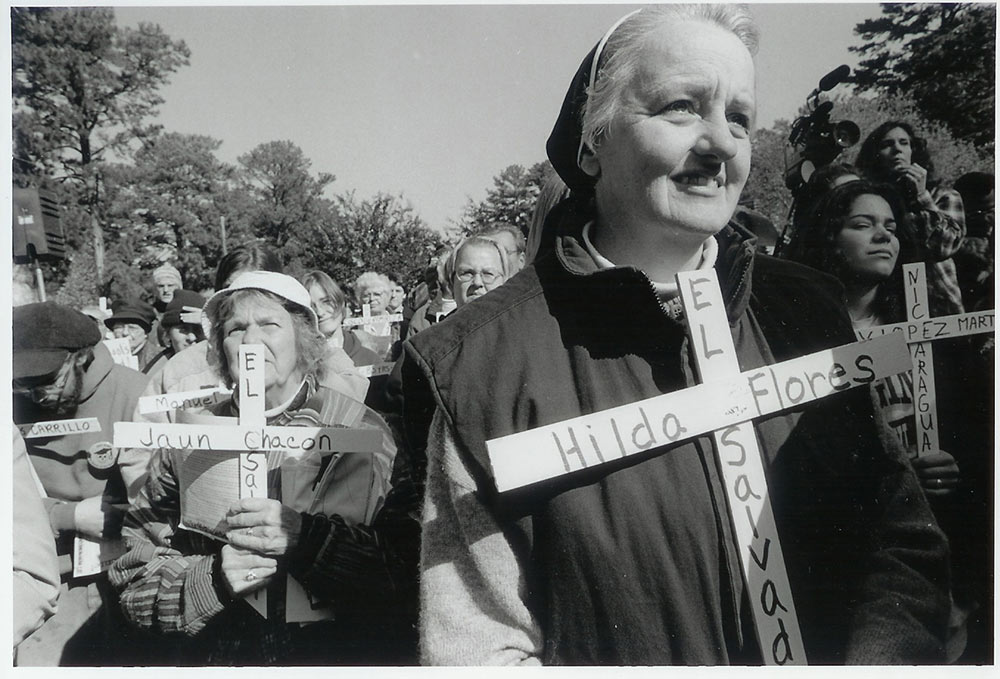Love is the only way to respond
The arms of slavery and oppression have a long reach. If a twenty-four hour news cycle had reported the selling, beatings and conditions of slavery two hundred years ago, would it have made any difference to a fledgling nation? If the beatings and lynchings of black men and women had been broadcast into our living rooms one hundred years ago, would it have made any difference?
Those stark black and white images of black men, women and children being beaten and hosed and set upon by vicious dogs certainly did sixty years ago. Scientists tell us that visual pictures stay in our mind forever. They are imprinted on our brain. A man in Kinosia being shot in the back seven times, another man being choked to death in Staten Island and yet another one being strangled by another man’s knee in Minneapolis are scenes of nightmares that won’t go away.
Just as our lives will not go back to the way they were before COVID-19, so our lives cannot go back to the way they were before this summer of Black Lives Matter. As long as the color of skin matters in our country, there exists racism. What we choose to do about it is one of the great moral issues of our time. Doing nothing is not an option for any person, especially for a Christian.
As Jesus did, the only way to respond to evil is with love, with nonviolent love in action. In the spirit of Jesus and other peaceful protestors, such as Martin Luther King, Mohandas Gandhi, Representative John Lewis, and millions of others who have sat at lunch counters, registered voters, marched on Washington or donned face masks to peacefully protest in streets all over the United States.
Of course, there are always those who chose to act violently and take advantage of a public gathering to do evil. It is unwise and untrue to blame all protestors for the actions of the violent ones. At this time of fear and anger, the words of Dr. Martin Luther King from a jail cell in Birmingham, Alabama are as relevant today as they were sixty years ago. As president of the Southern Christian Leadership Conference in 1963, Dr. King was invited to Birmingham to join in nonviolent direct action to secure equal justice for black Americans in that city. He was arrested for his actions; and while in jail, received a letter from eight clergymen criticizing him and accusing him of inciting violence.
His response is a teaching tool and a spiritual challenge in both eloquence and truth. In response to the criticism of the clergy as to his coming into Birmingham as an outsider he wrote: “Injustice anywhere is a threat to justice everywhere. We are caught in an inescapable network of mutuality, tied in a single garment of destiny.” For those who objected to the inconvenience and disruption of demonstrations in the streets, he reminded them of the cause of the protests. “You deplore the demonstrations taking place in Birmingham. But your statement fails to express a similar concern for the conditions that brought about the demonstrations.” Today for those who are “tired of the protests” how tired are they of the vicious acts of violence and death against black people? How can a comparison be made between inconvenience and life and death? How long can a people wait to be treated with respect? “Justice too long delayed is justice denied.”
“There comes a time when the cup of endurance runs over, and men (and women) are no longer willing to be plunged into an abyss of injustice where they experience the bleakness of corroding despair. … Let us all hope that the dark clouds of racial prejudice will soon pass away and the deep fog of misunderstanding will be lifted from our fear-drenched communities and in some not too distant tomorrow the radiant stars of love and brotherhood will shine over our great nation with all their scintillating beauty.”
Article first published by the Rhode Island Catholic
